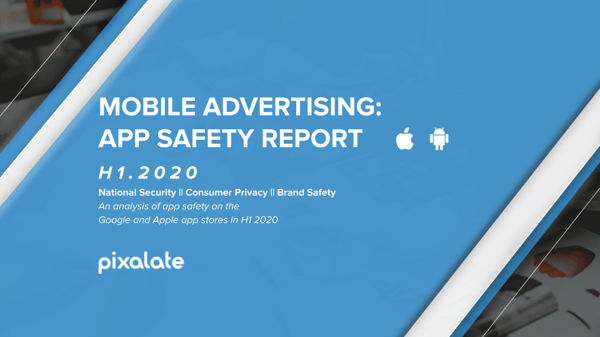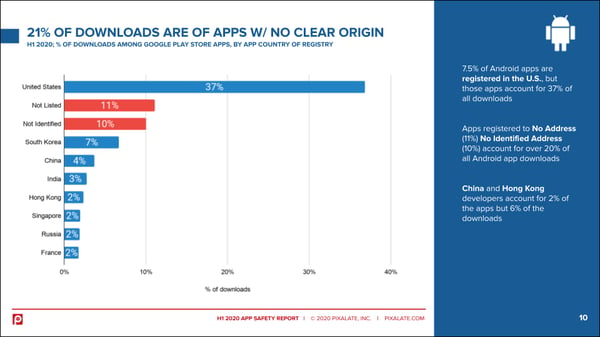
This week's review of ad fraud and quality in the digital advertising space.

Pixalate this week released its H1 2020 Mobile Advertising: App Safety Report, a deep dive into the state of mobile apps today. Pixalate’s report looks at app popularity, consumer privacy dangers, app country of registry (or lack thereof) and more.

Reporting on Pixalate's findings in its H1 2020 Mobile Advertising: App Safety Report, MediaPost notes that intelligence around dangerous permissions and consumer privacy are "significant to advertisers when considering data protection laws such as General Data Protection Regulations."
Jay Seirmarco, SVP of operations and legal affairs at Pixalate, told MediaPost: “With GDPR being joined by similar privacy-focused regulations around the world, advertisers would be wise to gain as much visibility as possible into the publishers with which they are doing business, directly and indirectly."

Econsultancy rounded up 13 stats to show how advertising is changing prior to the final quarter of 2020. One stat of note: "Buy-side advertisers expect CTV/OTT advertising to see the biggest gains among digital ad channels during H2 2020," wrote Econsultancy.

After Marc Pritchard, chief brand officer at Procter & Gamble, this week called the upfront process "antiquated," Adweek examined how "the 60-year-old way of reserving TV ad space is modernizing." Adweek noted: "The pandemic has accelerated calls for more flexibility in upfront buys, which are on track to dramatically fall."

Google this week announced it is ending paid Chrome extensions via the Chrome Web Store payments system. As The Verge noted, the "policy follows a temporary suspension of publishing paid extensions in January after Google noticed an uptick in fraudulent transactions that 'aim[ed] to exploit users.'"
*By entering your email address and clicking Subscribe, you are agreeing to our Terms of Use and Privacy Policy.
These Stories on Weekly Recaps
*By entering your email address and clicking Subscribe, you are agreeing to our Terms of Use and Privacy Policy.

Disclaimer: The content of this page reflects Pixalate’s opinions with respect to the factors that Pixalate believes can be useful to the digital media industry. Any proprietary data shared is grounded in Pixalate’s proprietary technology and analytics, which Pixalate is continuously evaluating and updating. Any references to outside sources should not be construed as endorsements. Pixalate’s opinions are just that - opinion, not facts or guarantees.
Per the MRC, “'Fraud' is not intended to represent fraud as defined in various laws, statutes and ordinances or as conventionally used in U.S. Court or other legal proceedings, but rather a custom definition strictly for advertising measurement purposes. Also per the MRC, “‘Invalid Traffic’ is defined generally as traffic that does not meet certain ad serving quality or completeness criteria, or otherwise does not represent legitimate ad traffic that should be included in measurement counts. Among the reasons why ad traffic may be deemed invalid is it is a result of non-human traffic (spiders, bots, etc.), or activity designed to produce fraudulent traffic.”

